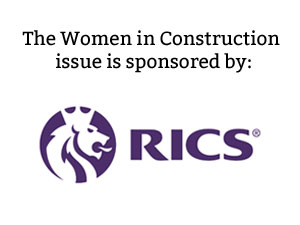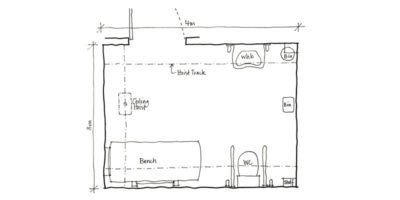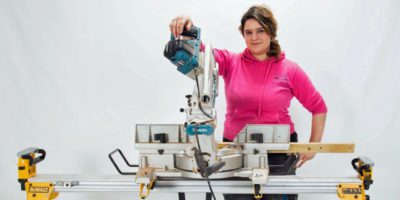Mica May is a co-director at Stopcocks Women Plumbers, a national organisation of skilled women plumbers. Established more than twenty five years ago by Hattie Hasan, Stopcocks is now a national network of self-employed plumbers for domestic work. In 2013 the company began supporting a community centred around a children’s home in Kenya, and Hattie and other members of the Stopcocks team visited in October last year to create a sustainable rainwater harvesting system.

“…It seems very silly to me that young women, fresh out of school seem to be the ones expected to change the culture of the whole construction industry – especially when they’re less than 1% of the people in it!..”
Mica, we’ve spoken to you before about Stopcocks. For readers who missed it, please could you remind us how about the origins of the company and your involvement?
Hattie had to employ herself as a plumber back in 1990 because although she contacted every plumbing company in Leeds, none of them would even consider employing her. When she went online in about 2000 she was immediately inundated with requests from women in training or who had trained in exactly the same position she’d been in ten years before – wanting to get into the industry.
She tried to find all the other women working as plumbers but they were so few / invisible (hardly any tiny companies had websites back then) she could only find about half a dozen, so she realised she had to make herself more visible so women plumbers could find her – she also set up a newsletter but it was a lot of work to just communicate with the small number of women plumbers she could find herself.
In 2006 she attended an entrepreneurs convention and was one of a very small number of companies invited on stage to speak. Very affected by the flood and famine in Ethiopia that year she declared she wanted to create ‘an army of women plumbers’ to transform the way water is distributed. She was mobbed by the other entrepreneurs and decided the best way to start was to bring the women plumbers together.
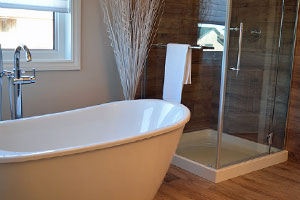
Another ten years to now and one trip to Kenya later, Stopcocks will launch as a franchise in January, with thriving regions in London, Aldershot, Oldham, Calder Valley, Weymouth, Cornwall and Bath (we have to have a plumber in Bath after all!) providing office support and technical mentoring for our members. We also represent the British wing of Plumbers Without Borders, a global group committed to clean water for all.
There seems to be no shortage of demand for female plumbers and in the construction sector more broadly, qualified female plumbers are in short supply. How do you go about recruiting new women into the organisation?
Articles like this help us promote our existence to other skilled trades women a lot, we are very active on Twitter and write for the trade magazines. The demand for women in domestic construction far outstrips the supply – currently about 1 in 100 plumbers and 1 in 300 gas engineers are women, and there is a massive skills gap in the industry as a whole. So we’ll never really have enough to satisfy customer demand.
It’s very exciting that in spite of all the obstacles and everything that happens to them, women are really keen to become plumbers (or follow some other skilled trade). Customers love skilled trades women, and it’s possible to have a fulfilling and self-directed career in skilled trades. Many women want the freedom skilled trades gives them.
Women plumbers who’re interested in joining usually phone us to find out more about us and what we do – because we are so different from every other company. Many ask directly for a job because that’s what’s usual, but we explain what we provide and those who are cut out for self-employment – with support – buy a licence (soon to be franchise). We provide some psychometric testing to help people establish whether they are fitted for working for themselves, interview them and put them through an immersion boot camp to assess skill level and aptitude before they fully commit.
We explain that with our help and proven system our plumbers can make a good income very quickly; our focus on customer service and the excellent work our plumbers provide means they get recommended by customers, which is of course the best kind of advertising.
We launch as a franchise in January so from then on each of our plumbers will own the franchise for their region. We’ve perfected our system and created a ‘business in a box’ so that as soon as people join us their business can increase in value.
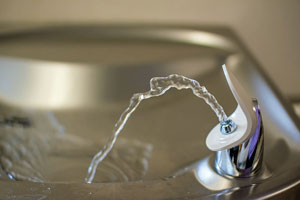
Along with the mentoring we provide training in customer service, since it’s our total commitment to that which makes us so different from every other plumbing company we know of.
What sort of income can a fully qualified plumber and gas fitter hope to achieve?
That’s a difficult one because one of the things we offer that is very different to a plumbing ‘job’ is a high level of job flexibility. Our plumbers have very different patterns of work – some fit in the school run and don’t work school holidays, others work most of the year and take off a long break during the summer and some work quite traditionally.
Our gas engineers have a higher earning capacity to the plumbers (although the gas fitters all also plumb). In their first year it’s fairly average to earn up to about £20k and that increases to around £30-40k with experience and with the gas engineers at the top end of that. If they want to work all hours and go out at night and weekends on emergencies they can earn a lot more, but we don’t advertise an emergency service. It doesn’t really fit with what most women want from work.
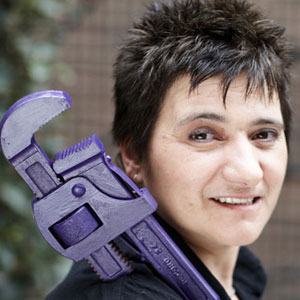
When Hattie just plumbed, rather than running the business she never did more than three days a week and had as many globetrotting holidays as she wanted.
How do we break down the barriers to getting more women to feel welcome, for example on college courses?
The problem with construction college courses is that they are set up for and full of 16-19 year old boys and most women come into plumbing when they’re over 25, so the barrier there is as much an age as a gender barrier.
Adult re-inventors have a very different attitude to learning from young people fresh out of school with no experience of the world of work. Again, it’s inflexibility that makes construction colleges less than ideal for adult women learners, so most go to private training colleges where they can learn at their own pace but where the standards can be extremely patchy.
Gender isn’t really the issue during learning as there’s support and it’s recognised that women are a valuable resource to the industry. Barriers are encountered when women attempt to ratify their college learning with a ‘proper’ qualification like the NVQ, which demands experience and assessment in the real world. Placements are in very short supply and few small firms can afford to properly train and support inexperienced workers.
This is why we advocate a big change in the way real experience is gained – actually as a part of the training.
A few organisations do provide experience working as a plumber in the real world but usually for only a couple of weeks which is only long enough to be assessed – not to really gain skills and competence. Workplace mentoring on top of this would encourage an atmosphere where people felt OK to ask questions, rather than just botching, which is far too common.
In a hugely male dominated sector, how do we ensure that female trainees and apprentices feel they have somewhere they can turn when they experience a problem?
As I said above, the culture of botching rather than asking questions is endemic and doesn’t serve men either. Tiny firms, which make up most of the firms who serve the domestic market, simply don’t have the time to teach apprentices and new workers, so people really do have to muddle through far too often.
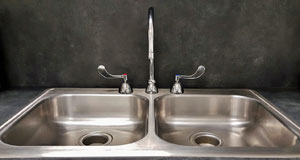
As for harassment of women at work in the construction industry, that’s endemic too and we hear stories that would make your toes curl. More women in the industry would change that of course, but that’s putting the cart before the horse.
It seems very silly to me that young women, fresh out of school seem to be the ones expected to change the culture of the whole construction industry – especially when they’re less than 1% of the people in it! Harassment needs to be properly addressed at all levels with proper training and whistle blowing to make the industry safer for those young women.
It seems that there is also a shortage of resource to advocate for female plumbers at grassroots level. What can be done?
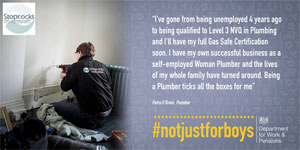
The issues need to be recognised in the industry – with women in such small numbers they don’t need to be taken seriously. Men actually need to take this on board as well as the bigger firms.
With the numbers as they are, women can’t make a big enough wave to even be seen. We’ve been very active making a big noise for more than ten years, it gets the attention of the media but not the industry – but activism butters no parsnips. Any activism and advocacy we do, we do voluntarily, in addition to our core business.
You journeyed to Kenya back in October. How did that go?
Kenya was fantastic! We have very strong connections with a community home near Mount Kenya, in Meru County. We collaborated with some of the local women to build a rainwater harvesting system. This area gets quite a lot of rain twice a year, but traditionally it isn’t collected, I think because of the risk of malaria, but if the water is covered and kept fresh it isn’t a malaria risk.
Hattie developed a way to construct platforms for the rainwater harvesting tanks very cheaply and quickly, using readily available local materials (including the rocks that are such a nuisance) and while we were there they built a system that would collect about 100,000 litres of rainwater. All water is boiled for drinking, but people pay high prices for all water – even for toilet flushing and showers, which isn’t necessary if the rain is used.
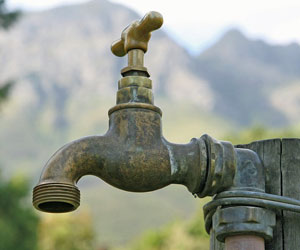
Since we came back we’ve joined with Plumbers Without Borders, based in US, who match volunteers with skills with projects wanting them. They also seek funding, so that unlike us in October, volunteers don’t have to fund their own trips.
What projects are you looking forward to?
We’d love to go back to Kenya soon, the connections we’ve made mean we can carry out work near Nairobi – there’s a great project that works with the children of women in prison, sometimes rehabilitating whole families and sometimes providing excellent adoptive homes for the children. We’d love to work with them and source some funding for it from local businesses in Nairobi. We also have requests to work in Madagascar, Tanzania and Zanzibar.
Back in the UK we’re really excited about becoming a franchise because it means we’ll really be able to meet our customers’ demands and also help a lot more women become great plumbers.
https://www.facebook.com/stopcocks
Freephone for customers – 0800 8620010
Direct line for enquiries about joining Stopcocks – 07710 562089


